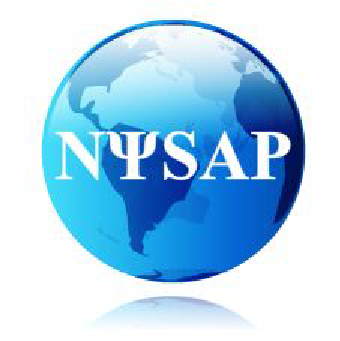November 6, 2025 - November 14, 2025
8:00 AM - 11:30 AM
Pacific
14 Hours | 14 CEs
$650 Registration | $600 Early Registration (through October 31st) | Live Virtual Training via Zoom
Ivan Kruh, PhD and Christina L. Riggs Romaine, PhD present a live virtual professional training program on Evaluating Juveniles for Competency to Proceed in Delinquency Matters in partnership with the National Youth Screening & Assessment Partners (NYSAP).
This live event takes place over four half-day sessions from 8:00 am - 11:30 am PST / 11:00 am - 2:30 pm EST each day.
In recent years, there has been an increasing focus on the competence to proceed of juveniles being adjudicated in juvenile courts. This program focuses on conducting juvenile adjudicative competence evaluations that meet best practice standards.
The training covers foundational issues, including the evolution of legislation regarding juvenile competence and differences in legislation across states. The manner in which these legal standards can be translated into measurable forensic concepts is discussed, with a focus on how these concepts differ between juvenile and adult cases. The current empirical literature relevant to juvenile adjudicative competence is reviewed, with a particular focus on the intersection of adolescent development and court-related functioning.
All of this background set the stage for a detailed discussion of conducting juvenile adjudicative competence evaluations. Preparation for the evaluation and the data collection process is examined, with a particular focus on developmentally sensitive competence interviewing using the Juvenile Adjudicative Competency Interview (JACI), the role of available forensic assessment instruments in juvenile adjudicative competence evaluations, and the importance of third-party corroboration.
Methods for interpretation and integration of data are presented, as well as strategies for effective communication of findings. Throughout this discussion, there is a focus on sensitivity to functional limitations based on normal child development and developmental psychopathology. Juvenile competence remediation is also highlighted. A sample case worked through by participants with structured feedback is used to highlight relevant issues, and the program includes additional activities to assist participants in honing their interviewing, record reviewing, and data interpretation skills.
Training Outline:
Day One:
The intended audience for this training is clinicians with a foundation in forensic mental health assessment who seek to conduct or deepen their understanding of evaluating juveniles for competency to proceed.
This training is designed for graduate-educated professionals working in mental health and juvenile justice. Ideal attendees include doctoral‑level clinical, forensic, and school psychologists (PhD/PsyD), child and adolescent psychiatrists (MD/DO), master’s‑prepared and licensed clinical social workers and professional counselors (MSW, LCSW, LPC, LMHC), as well as juvenile defense and prosecuting attorneys, guardian ad litem lawyers (JD), probation and court services officers, mitigation specialists, and child‑welfare or detention‑center clinicians. Participants could work in private practice, hospital‑based forensic units, public defender or district attorney offices, juvenile detention centers, or community child‑welfare agencies. This training is designed to be directly applicable in practice, as it provides a model and details for implementing clinical evaluations.
Attendance is required for each live event session to obtain CE credit. Please contact our customer service team if you have any questions about scheduling or require accommodations.

Intended Audience
This live program is intended for mental health and other allied professionals.

Experience Level
This live program is appropriate for beginner, intermediate, and advanced level clinicians.

CE / CPD Credit
APA, ASWB, CPA, NBCC: Click here for state and other regional board approvals.
Learning Objectives
Upon completion of this program you will be able to:

Describe competency to proceed as it is typically defined in juvenile court matters

Describe why competency to proceed is a relatively new and still evolving concern in juvenile court matters

Describe strategies for using local statutes to guide practice when conducting evaluations of juveniles for competency to proceed

Describe the unique role of developmental immaturity as a potential cause of weaknesses in juvenile competency to proceed evaluations

Describe strategies for conducting developmentally sensitive juvenile competency evaluations

Describe a thoughtful approach to considering developmental psychopathology in evaluations of juveniles for competency to proceed

Describe a five question model for conducting juvenile competency to proceed evaluations

Describe the Juvenile Adjudicative Competency Interview (JACI) as a method for collecting data relevant to juvenile competency to proceed evaluations

Describe the didactic training provided for application to a sample evaluation case

Live Event Policy
Registration for our live events is covered for one (1) person per purchase. If you would like to purchase for a group, please contact our group training team.
Event Communications
When registering, use an email that is active and that you check regularly. We are not responsible for communications not being received; if you do not add caps@paloaltou.edu to your email safe sender list, our emails are likely to end up in your spam or junk folders.
Cancellation Policy
Have a sudden change of plans and are unable to attend live? No worries; you will be given access to the on-demand version of the program once available. Please note if you attend live, no access to the recording will be given.
Event Conduct
Professional conduct is expected during our live programs. Our goal is to make our events as interactive as possible for all participants. We reserve the right to remove any participants who are disruptive, act unprofessionally, or who we are unable to verify their purchase.
Develop a Specialty Area of Practice
Transforming mental health professionals into experts
Expert Instructors
Professional training developed and delivered by the field's leading experts

CE Credit
Earn CE credit for meaningful professional training that will elevate your practice
Convenience & Flexibility
Learn at your own pace, from wherever you might be!
Program Partner
National Youth Screening & Assessment Partners (NYSAP)
The National Youth Screening & Assessment Partners (NYSAP) is a technical assistance and research group dedicated to helping juvenile justice and related programs nationwide. Since 2000, NYSAP has assisted juvenile justice systems to make decisions about adolescents that are consistent with youths’ health and positive development and with the community’s interests by helping systems use reliable, evidence-based methods for screening and assessment. We provide training, technical assistance, and quality implementation services to agencies and programs in the areas of risk screening and risk-needs assessment, behavioral health screening, and competence to stand trial evaluations. NYSAP professionals have played a key role for 25 years in research on juveniles’ competence to stand trial and in developing juvenile competence standards for forensic clinical practice, law, and policy. In response to the growing demand for juvenile competence evaluations nationally, we provide consultation to assist agencies in developing or refining their juvenile competence service delivery system, as well as creating and conducting quality assurance procedures. We train clinicians and juvenile justice stakeholders (e.g., judges, attorneys, and community partners) in practice standards for conducting high-quality juvenile competence evaluations.


Earning Certificate
This is badge-earning course, which means it will help you earn a certificate that can be showcased on digital platforms like Linkedin.
CE Sponsorship Information
Palo Alto University, Continuing and Professional Studies (CONCEPT) is approved by the American Psychological Association to sponsor continuing education for psychologists. Palo Alto University, Continuing and Professional Studies (CONCEPT) maintains responsibility for this program and its content. Palo Alto University, Continuing and Professional Studies (CONCEPT) is approved by the Canadian Psychological Association to offer continuing education for psychologists. Palo Alto University, Continuing and Professional Studies (CONCEPT), SW CPE is recognized by the New York State Education Department’s State Board for Social Work as an approved provider of continuing education for licensed social workers #SW-0356 and the New York State Education Department’s State Board for Mental Health Practitioners as an approved provider of continuing education for licensed mental health counselors. #MHC-0073. Palo Alto University, Continuing and Professional Studies (CONCEPT) has been approved by NBCC as an Approved Continuing Education Provider, ACEP No. 6811. Programs that do not qualify for NBCC credit are clearly identified. CONCEPT Professional Training, #1480, is approved to offer social work continuing education by the Association of Social Work Boards (ASWB) Approved Continuing Education (ACE) program. Organizations, not individual courses, are approved as ACE providers. State and provincial regulatory boards have the final authority to determine whether an individual course may be accepted for continuing education credit. CONCEPT Professional Training maintains responsibility for this course. ACE provider approval period: 11/22/23-11/22/26. Social workers completing this course receive (clinical or social work ethics) continuing education credits.


